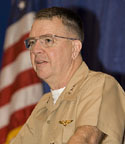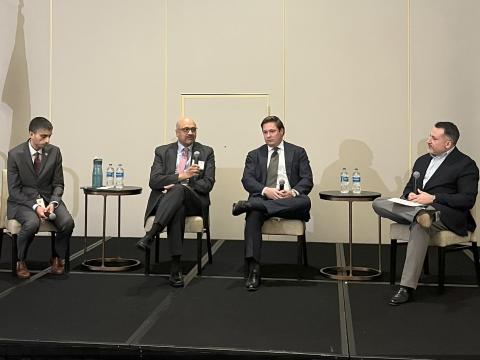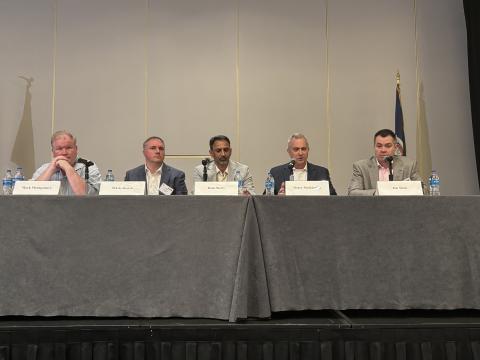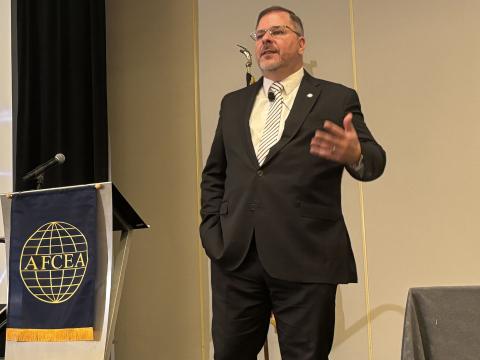Marine General Seeks Technologies That Decrease Uncertainty of Warfare
 |
Lt. Gen. Keith J. Stalder, USMC, commanding general, II Marine Expeditionary Force, challenges industry to design devices that will lighten the warfighters’ load. Currently, Marines must carry more than 60 pounds of equipment in temperatures that can reach 120 degrees. |
“We need to be ready for a cross section of conflict that comprises chaos, friction and uncertainty,” the general said. One way to handle this is to push decision making to the lower echelon warfighters and allow them to act based on the information they receive from commanders through innovative technologies, he added.
Gen. Stalder emphasized that technology is means to an end and not an end in itself. He is interested in new technologies that will enable the service to operate more easily in a number of situations. For example, language training is one of the Marine Corps’ largest challenges. Technologies that can facilitate this training would be extremely helpful to the force, he shared. In addition, language translation poses a huge challenge, so an audio language translating device that is more advanced than phraselators also would be useful to Marines. “The current equipment is good, but it is not user-friendly enough for the young soldiers in current operations,” he stated.
One technology area with substantial growth potential is simulation for training, Gen. Stalder shared. “Aviation simulation training is very good, but ground combat forces simulation training has lagged behind and the return on investment will be tremendous,” he stated.
Other technical capabilities the Marine Corps requires include improved identification-friend-or-foe equipment, range estimation gear, supply chain management applications, satellite communications capabilities at lower command levels and networked personal digital assistants that include more features, particularly those related to biometrics, the general related.




Comments